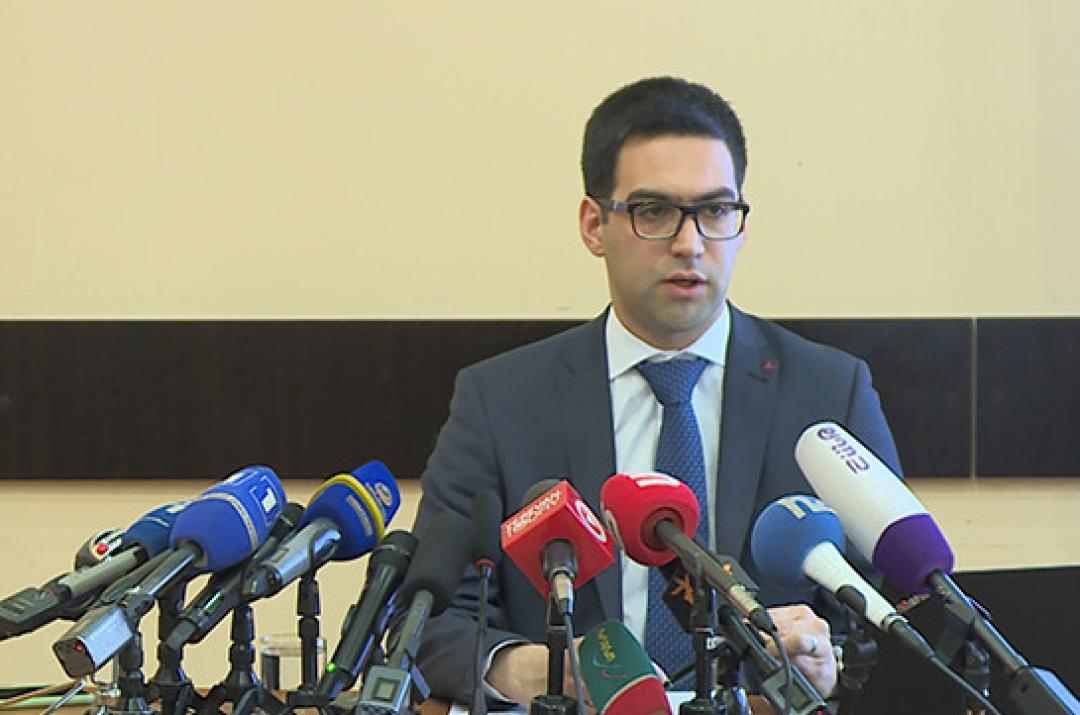
Who is Armenia’s new Minister of Justice?

On 19 June, Rustam Badasyan, a 28-year-old lawyer was appointed as Armenia’s new justice minister. Previously, Badasyan had served as deputy head of the State Revenue Committee comprising the national tax and customs services.
Badasyan had worked for private law firms from 2014-2018, specializing in business law and tax affairs in particular. Pashinyan hired Badasyan as his lawyer after being detained on 22 April 2018 during the mass protests against Armenia’s longtime leader Serzh Sargsyan’s attempt to extend his rule. He took up his position at the State Revenue Committee after the Velvet Revolution.
On Badasyan’s presentation, Prime Minister Pashinyan said that the new justice minister is an intellectual, strong-willed person with high professional skills. “I consider it important that Mr Badasyan will head the reforms in the justice system in this resolute phase. It is not a secret that we are currently in a resolute and breakthrough phase and the government is determined to have a truly independent judicial system in the pursuit of which the justice minister must fully control the situation and implement the political messages addressed by the government with effective steps,” he stated.
Artak Zeynalyan, Armenia’s former justice minister, whose reasons for resignation still have not been clarified, was surprisingly not present at the presentation. According to Pashinyan, Zeynalyan was not in Armenia at the moment and that was the reason for his absence. “I am convinced that Mr Zeynalyan’s potential and experience will be used for improving the Armenian statehood,” Pashinyan stated.
On 7 June, the Armenian Minister of Justice, Artak Zeynalyan, submitted his resignation from the office. The details of his resignation still remain a mystery.
He gave no decisive reason on the day of his resignation. He just thanked Prime Minister Nikol Pashinyan for appointing him as justice minister following last year’s “velvet revolution.” He also thanked the Justice Ministry employees for the “interesting, fruitful and responsible joint work.”
“I am sure that everything will be fine … But if it will not be fine, it will be very fine,” wrote Zeynalyan.
Lilit Makunts, the parliamentary leader of the ruling My Step faction, suggested that his resignation is connected to the sweeping judicial reforms planned by the Armenian authorities. Makunts said some My Step lawmakers were unhappy with the reform-related work of the Justice Ministry and Zeynalyan in particular. She insisted, however, that none of them called for Zeynalyan’s resignation.
As a reminder, on 20 May, Prime Minister Pashinyan called his supporters to block all of the courts in Armenia, announcing a radical reform of the judiciary. Speaking to journalists on 21 May, Zeynalyan pointedly declined to comment on the court blockade denounced by the Armenian opposition.
Gevorg Danielyan, the acting head of the Supreme Judicial Council (SJC), a state body overseeing Armenia’s courts also stepped down on the same day. He said the SJC needs to have a different composition in order to “really inspire trust” and be able to implement judicial reforms. He also thanked Gagik Harutyunyan, the previous head of the SJC who stepped down on 24 May, for the joint work in an unprecedented overloaded regime for around a year under the atmosphere of false information which appeared in media rather frequently.
On 10 June, Zeynalyan gave a brief public explanation for his resignation. “Assessing the information flows I have decided to step down,” he told the reporters. When asked to explain his statement, Zeynalyan replied that he will not answer any more questions as he was in a hurry to participate in the session of the Supreme Judicial Council.
See Also


Simonyan: “Armenia Should Trade with Turkey and Azerbaijan Instead of Closing Borders”

Mirzoyan Meets US Deputy Assistant Secretary Joshua Huck

Azerbaijani President Holds Talks with UAE and German Business Delegations on Economic Cooperation

Grigoryan Confirms Armenia’s Readiness to Dissolve OSCE Minsk Group Upon Peace Treaty Signing

